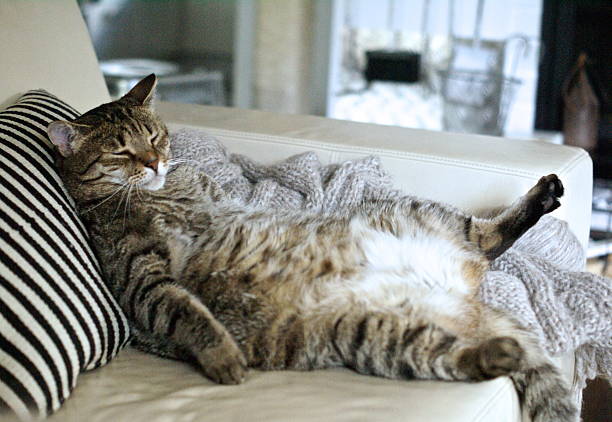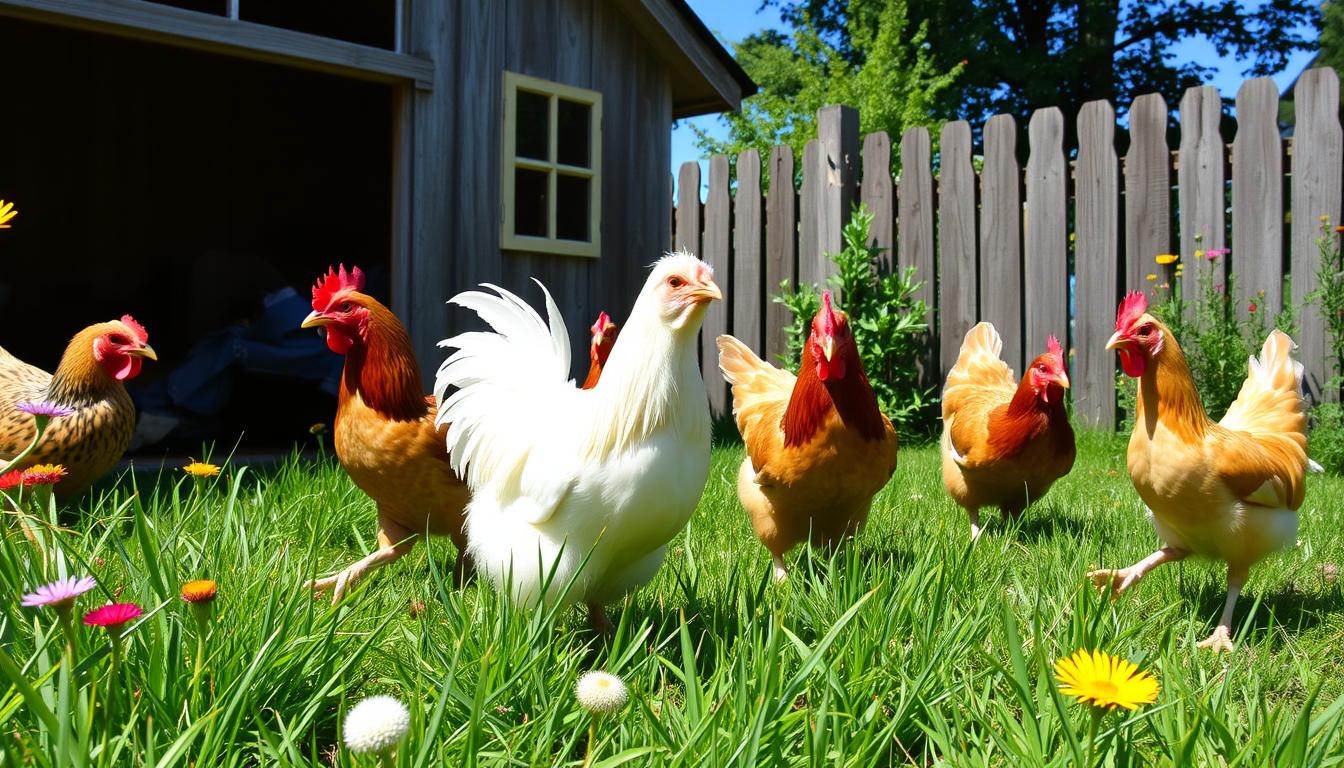Deer Baiting Laws in CT: Pre-Season Rules & Regulations
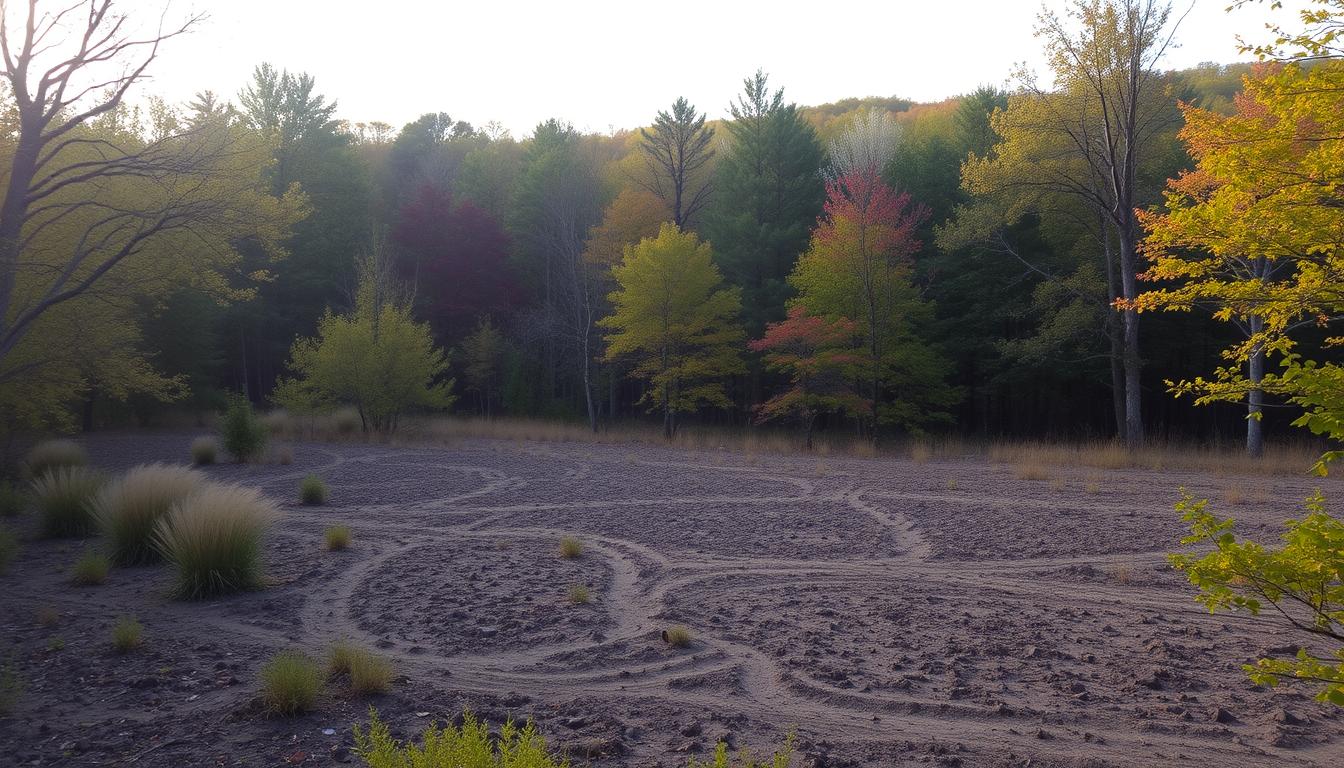
In Connecticut, baiting is allowed on both private and public land, but only under certain conditions. This shows how important it is to know the deer baiting laws in Connecticut. The rules change a lot based on where you are, what you use, and when you hunt. It’s key to keep up with the connecticut hunting regulations to avoid legal trouble and help wildlife.
This article will look into Connecticut’s deer baiting laws before hunting season starts. With the right knowledge, you can follow these laws and help keep deer populations healthy.
Key Takeaways
- Connecticut allows baiting on private and public lands depending on the zone.
- Understanding local regulations is vital for compliant hunting.
- Different states have varying laws regarding baiting, impacting hunting strategies.
- Responsibility and ethics in hunting are emphasized through education.
- Stay updated on seasonal regulations to avoid legal conflicts.
Understanding Deer Baiting in Connecticut
In Connecticut, deer baiting is a key part of hunting. It means placing food to attract deer, making hunting easier. Knowing the laws about deer baiting in Connecticut is important. The rules say where and how to bait to follow state laws.
Definition of Deer Baiting
Deer baiting is when hunters scatter food like corn to draw deer closer. It’s important to know the rules about this to follow Connecticut’s hunting laws. For example, baiting is banned on public land and limited on private land in certain zones. Hunters need to know where they can bait legally, especially in Zones 11 and 1212.
Importance of Baiting for Hunters
Baiting helps hunters by bringing deer into easy-to-reach areas. This increases the chances of a successful hunt. It also lets hunters study deer behavior and patterns. Knowing the rules of deer baiting can give hunters an advantage during hunting season. It’s crucial to keep up with law changes to have a good hunt while following the rules.
Overview of Connecticut Hunting Regulations
Knowing Connecticut hunting laws is key for hunters in the state. These laws cover hunting regulations in ct, keeping hunting safe and wildlife healthy. Learning these rules helps ensure a responsible hunt.
General Requirements for Hunters
In Connecticut, hunters must meet certain requirements. Those under 18 need a license and can hunt with supervision. You also must take a hunter safety course to learn safe hunting practices.
It’s illegal to carry a loaded gun near buildings or animals. This rule keeps everyone safe in crowded areas3. Hunting while drunk or on drugs is also banned to prevent accidents and keep the public safe3.
Permits and Licenses Needed
To hunt deer in Connecticut, you need a Firearms Hunting License. Depending on your hunting method, you might need more permits. For example, archery hunters must get an Archery Deer Permit for $41.00 if you’re a resident or $135.00 if you’re not4.
Remember the bag limits for deer hunting. For example, in Zones 11 and 12, you can hunt 2 either sex and 2 antlerless deer on private land4. Always check the latest hunting regulations in ct and updates from the Connecticut Department of Energy and Environmental Protection here.
Connecticut Deer Management Zones
Connecticut is divided into Deer Management Zones (DMZs) to manage deer populations. Each zone has its own connecticut deer hunting regulations. These rules consider deer density, habitat, and hunting’s impact on ecosystems.
Explanation of Zones
In Connecticut, baiting is only allowed in Urban Deer Management Zones. This is because deer populations are too high in these areas5. Knowing these zones helps hunters follow ct hunting season rules for hunting methods and timing.
Specific Regulations by Zone
Each DMZ has its own rules for baiting, hunting permits, and allowed hunting tools. For example, some zones allow shotguns or bows for deer hunting6. Landowners can also get permits for deer damage to crops, with up to six permits per landowner since 19796.
| DMZ | Population Management Strategy | Baiting Status |
|---|---|---|
| Urban Zones | Reducing deer populations due to high density | Allowed |
| Rural Zones | Maintaining population balance | Not allowed |
It’s important to keep up with changes in these zones. The rules have been updated since the 1950s6.
Is baiting deer before hunting season illegal in ct?
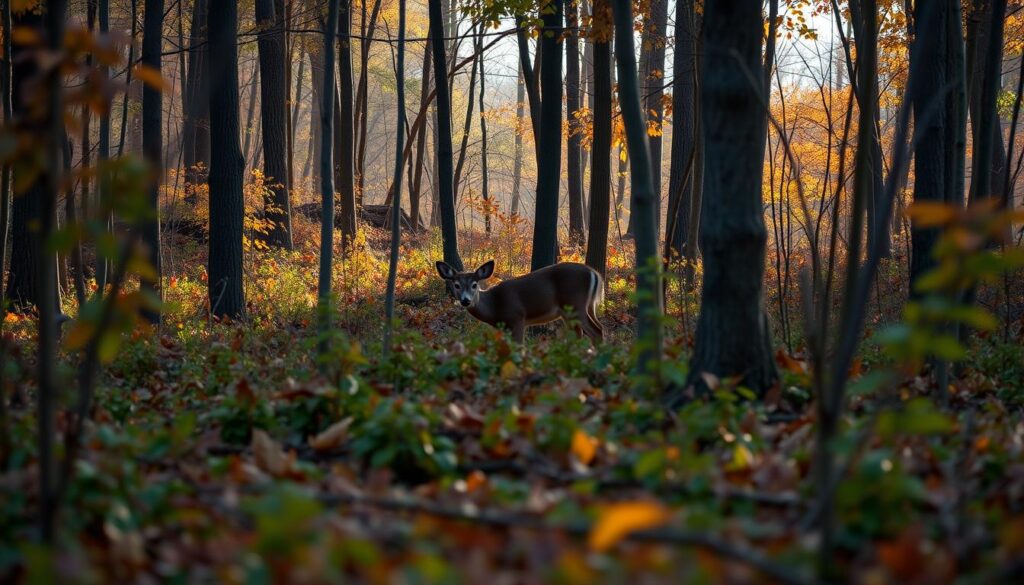
Knowing if baiting deer is legal in Connecticut is key for hunters. In Connecticut, baiting is okay in Urban Deer Management Zones. These areas have too many deer and need help managing them5. But, baiting can be illegal in other places, especially outside these zones.
Legal Status of Baiting
The baiting deer laws ct show that zoning rules change across the state. Landowners can bait deer on their private land, but public lands have stricter rules7. Connecticut lets baiting on both private and public lands, but with strict rules. Breaking these laws can hurt your hunting and might take away your hunting rights.
Consequences of Illegal Baiting
Illegal baiting can lead to big fines and penalties. This might even take away your hunting license. Hunters need to know the latest rules to avoid trouble8. Ignoring the law can mean losing your chance to hunt, ruining your outdoor fun. It’s important to follow the baiting deer laws ct to keep your hunting rights and respect the hunting community.
Permitted Baiting Practices in Connecticut
Understanding deer baiting laws in connecticut is key for a successful hunt. Only private lands in zones 11 and 12 allow baiting. It’s vital to follow these rules to avoid fines. Baiting is allowed before and during hunting season, helping to attract deer.
When and How to Bait Legally
You can start baiting deer at the start of hunting season. Make sure your bait is ready before you hunt. Connecticut’s deer numbers are high, which can harm local wildlife. Baiting responsibly helps your hunt and wildlife management.
Types of Bait That Can Be Used
Knowing what bait is allowed under connecticut hunting regulations can improve your hunt. Grains, fruits, and vegetables are okay, along with synthetic attractants. Using different baits can attract deer and keep them healthy.
| Zone | Baiting Allowed | Permitted Bait Types |
|---|---|---|
| 11 | Yes | Grains, Fruits, Vegetables |
| 12 | Yes | Grains, Fruits, Vegetables |
For more on pets and emotional support, check out the importance of understanding pets in our lives9.
Impact of Baiting on Deer Behavior
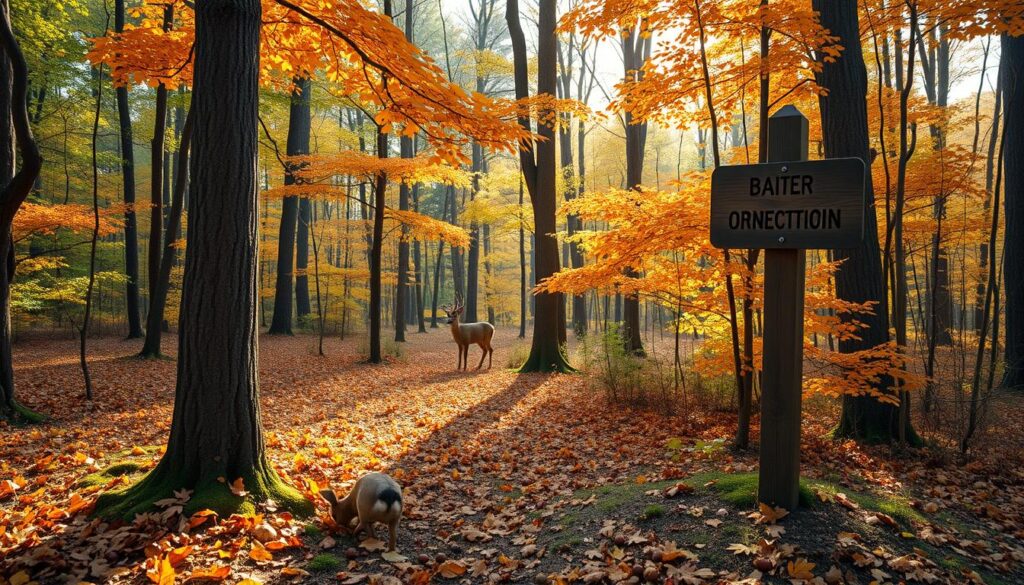
Baiting deer has big effects on their behavior and numbers, especially in Connecticut. It’s important to know how baiting changes deer movements before and during hunting. This helps with conservation and fair hunting practices. Learn more about connecticut deer hunting regulations and what’s considered ethical hunting.
Pre-Baiting Effects on Deer Movements
Before hunting season, baiting makes deer gather at feeding sites. This might be similar to is baiting deer before hunting season illegal in ct. Deer patterns at these sites can help hunters find them more easily. But, baiting changes deer behavior, making them rely on artificial food.
This shift affects their movement and where they live. It can lead to competition for resources, causing stress on the ecosystem1011.
Long-Term Effects on Deer Population
Baiting’s long-term effects are not just on individual deer but on the whole population. Deer gathering at bait sites can harm the habitat. This can hurt vegetation and other wildlife that depend on it1112.
It can also spread diseases like chronic wasting disease (CWD) and bovine tuberculosis. This makes deer populations harder to manage and hurts the hunting industry’s economy1012.
In conclusion, the relationship between baiting and deer behavior needs careful management. It’s crucial to address these issues in connecticut deer hunting regulations. This ensures healthy wildlife populations and responsible hunting.
Potential Health Risks Related to Baiting
Baiting can make hunting more successful, but it also has health risks for deer. It’s important for hunters to know about these dangers. Chronic Wasting Disease (CWD) is a big worry because it can spread when deer gather around bait. States like Connecticut have seen problems from baiting that might spread diseases13.
Understanding baiting deer laws in Connecticut is key to seeing the bigger picture.
Chronic Wasting Disease Awareness
Chronic Wasting Disease is a brain disorder that deer can catch. It spreads when infected deer meet others at bait sites. Baiting can make these meetings more common, leading to more disease and harming deer numbers.
Studies show some states banned baiting because of its role in spreading diseases like CWD. Following Connecticut’s hunting laws is crucial for keeping wildlife healthy.
Best Practices for Minimizing Risks
To lower health risks from baiting, follow responsible steps. Check bait sites often to spot health problems early. Dispose of unused bait properly to avoid attracting deer to sick areas, which helps stop disease spread.
Staying updated on effective baiting practices helps keep deer healthy and follows baiting laws in Connecticut. Being proactive helps the deer and the hunting area stay healthy.
Understanding the Consequences of Violating Baiting Laws
In Connecticut, following hunting rules is key, especially about baiting. Knowing the penalties helps you make better choices while hunting.
Penalties and Fines
Breaking baiting laws in Connecticut can lead to big fines. These fines show how serious the crime is. If you keep breaking the rules, you might face even bigger fines and lose your hunting rights.
Legal Ramifications for Offenders
Not following hunting laws in ct can cause more than just fines. You could lose your hunting license for a while. For example, baiting deer before hunting season can lead to criminal charges. This can really hurt your chances to hunt in the future14.
Following these rules helps everyone, not just hunters. It keeps wildlife healthy in Connecticut. When all hunters follow the rules, it’s better for everyone.
Resources for Connecticut Hunters
As a hunter in Connecticut, using local resources can make your experience better. It also keeps you up-to-date on the latest hunting rules and deer baiting laws. It’s important to connect with different groups, websites, and local communities. This helps you learn the best ways to hunt and find out about upcoming events.
Helpful Websites and Organizations
- Connecticut Department of Energy and Environmental Protection (DEEP): The DEEP offers important info on wildlife rules and conservation.
- Connecticut Wildlife Federation: This group works to promote safe hunting and wildlife care.
- National Wild Turkey Federation: With local chapters, they share info on hunting events and support.
Local Hunting Communities and Support
Being part of local hunting groups has many advantages. You can get help, learn through workshops, and meet others. These groups share knowledge on hunting laws and help you understand any changes. Look for community boards, online forums, or local events.
Remember to talk to landowners about deer baiting laws in Connecticut, especially if you’re using bait on private land. By staying informed and connected, you improve your hunting skills. You also help preserve Connecticut’s hunting tradition15.
Conclusion
Understanding deer baiting laws in Connecticut is key for hunting responsibly. Connecticut lets baiting in certain Deer Management Zones but not others. This shows the importance of knowing the16 rules for baiting.
Hunters must follow local and state laws to hunt ethically. This is crucial for maintaining fair hunting practices.
Only a few states allow bait for deer hunting. This means many hunters don’t know the rules in different places. For example, Connecticut has rules for baiting, but some states ban it altogether. This shows how different hunting laws can be across the country17.
It’s also important to know about health risks like Chronic Wasting Disease. Some states have reported cases of this disease, either within their borders or nearby18.
As a hunter, you must keep up with local laws. This helps keep deer populations healthy and supports fair hunting. Knowing the baiting laws in Connecticut makes your hunting better and helps the hunting community16.
FAQ
Is baiting deer before hunting season illegal in CT?
What types of bait are allowed when hunting deer in Connecticut?
What permits and licenses do I need to hunt deer in Connecticut?
How are Connecticut’s Deer Management Zones determined?
What are the consequences of violating baiting laws in Connecticut?
What should I do if I notice sick deer in a baited area?
Where can I find updated hunting regulations in Connecticut?
What is Chronic Wasting Disease (CWD), and how does it relate to deer baiting?
How can I responsibly bait deer without negatively impacting their behavior?
Source Links
- https://portal.ct.gov/deep/hunting/questions-about-hunting – Questions about Hunting
- https://deersteroids.com/blogs/state-deer-baiting-regulations/state-by-state-summary?srsltid=AfmBOooXZQcpbxcAv7bUMt3-6BdGp_EIp9EP0_sSvKakKCq56JVN1Pri – Summary of Deer Baiting Regulations and Laws by State
- https://portal.ct.gov/deep/hunting/2024-connecticut-hunting-and-trapping-guide/hunting-laws-and-regulations – Hunting Laws and Regulations
- https://www.kalkal-online.com/connecticut-hunting-season/ – Connecticut Hunting Season Dates, Limits And Rules 2024-2025
- https://www.gameandfishmag.com/editorial/how-and-Where-you-can-bait-deer-in-the-east/509535 – How and Where You Can Bait Deer in the East: The Complete Guide – Game & Fish
- https://law.justia.com/codes/connecticut/title-26/chapter-490/section-26-82/ – 2023 Connecticut General Statutes :: Title 26 – Fisheries and Game :: Chapter 490 – Fisheries and Game :: Section 26-82. – Killing of deer regulated. Damage permit. Jacklight permit. Penalties. Plan by homeowner association, municipality or nonprofit land-holding organization to take deer.
- https://deersteroids.com/blogs/state-deer-baiting-regulations/state-by-state-summary?srsltid=AfmBOooFRr9gPy1jtTNEpmuYK93J9yiJvwvssq-FfYAJgpTQep5ioU52 – Summary of Deer Baiting Regulations and Laws by State
- https://www.wiltonct.org/sites/g/files/vyhlif10026/f/pages/deer_season_qa_2022.pdf – 1
- https://oldgobbler.com/Forum/index.php?topic=45674.0 – Connecticut
- https://wildlife.org/wp-content/uploads/2014/05/Baiting06-1.pdf – 46686_TWS_S2_R1.indd
- https://dwr.virginia.gov/wp-content/uploads/study-report-hunting-over-bait.pdf – A Study Report on the Effects of Removing the Prohibition Against Hunting Over Bait in Virginia
- https://deerassociation.com/can-baiting-and-feeding-really-spread-deer-diseases-faster/ – Can Baiting and Feeding Really Spread Deer Diseases Faster?
- https://www.alabamawildlife.org/news/baiting-is-bad-for-the-resource/ – Baiting is Bad for the Resource | News Archive | AWF
- https://www.fws.gov/sites/default/files/documents/OLE Hunting – Waterfowl Hunting and Baiting.pdf – PDF
- http://www.hamptonct.org/resources/deep_consent_form_town.pdf – PDF
- https://www.archerytalk.com/threads/what-states-allow-deer-baiting.479065/page-2 – What states allow Deer Baiting
- https://www.skinnymoose.com/hooksandbullets/2008/10/14/deer-baiting-across-the-us/ – Deer Baiting Across The U.S.
- https://www.huntstand.com/fieldnotes/deer/the-deer-baiting-guide-all-about-baiting-whitetails/ – The Deer Baiting Guide: All About Baiting Whitetails

